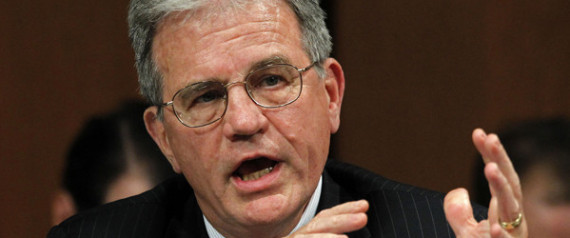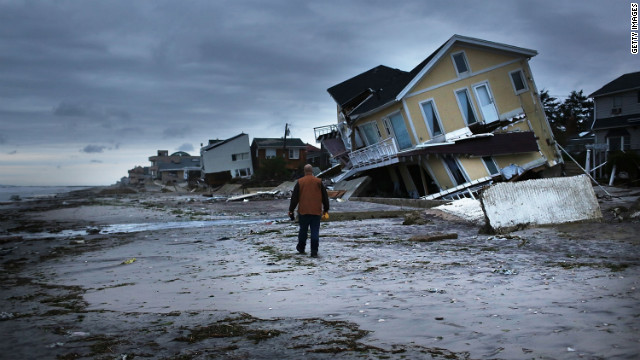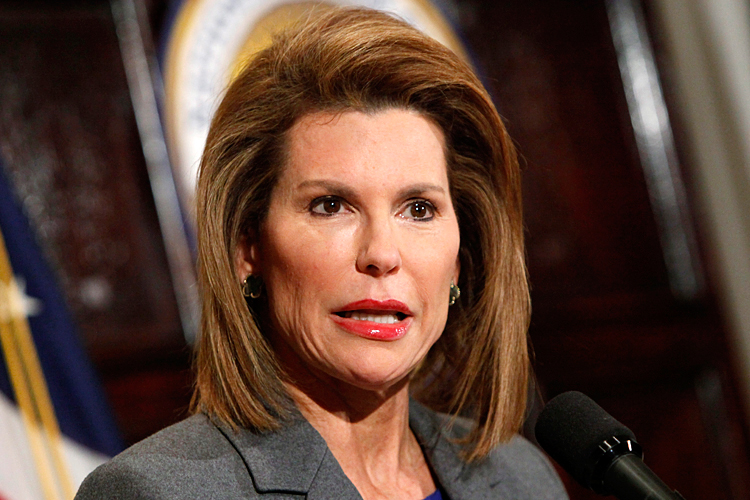 |
Michele Bachmann: One of President Obama's many helpmates.
You haven't lived until you've heard her pronounce "Obamacare." |
I go after conservative malfeasance with a relish. I can't help it because I see it as quite damaging to our country. That genre of conservatism I least tolerate is libertarianism, which I find antisocial in the extreme. C'mon people, be part of the community, participate with a sense that
we do things, valuable things, better together than apart. Hence my admiration for good governance.
The Obama administration has been a conundrum, with a reasonable Keynesian disposition when it comes to fostering economic growth, although Obama's Keynesianism is counterbalanced by his preference to shower banks with helicopter money drops rather than the citizenry, but that's partly because of the leash (yes, leash) a recalcitrant Congress has restrained him with. What are you gonna do? Lean on the Fed, that's what. I believe QE 1, 2, 3 have helped. We're still breathing.
Obamacare might not be perfect, but it goes a long way toward fixing the healthcare mess. No wonder conservatives hate it: It benefits the Great Unwashed, while benefiting insurance companies, as well. Why didn't conservatives think of that? Oh wait,
they did.
Another quasi-deed by which we can know Barack Obama is his penchant for softball negotiating, as in campaigning for weeks for his specific objective, then going to Capitol Hill and caving in ten minutes. A quick example was how easily he caved in raising the level of Bush tax-cut increases from $250k to 400k. He didn't need to do that but he did. It's a small thing, but Barack Obama's track record with Congress is peppered with these little defeats. So that's one way we know the man.
 |
So, Joe, I told him I was with him all the way. Then,
Barack said, "Great, I'll go get us some pizza," and
before he came back I'd cut his tax demand in half.
And he said, "I'm fine with that." Can you believe it?! |
Another is by his drone program. Oddly I'm a bit hawkish on this one, possibly because I'm naive and optimistic, but here's the main reason why: I prefer quick and dirty drone strikes -- if they hit their intended target with the smallest collateral damage -- to large military operations like, say, the Battle of the Bulge or the Battle for Stalingrad. Capiche?
We're talking asymmetric war here. There are no front lines, only locales where conspirators hang out, hatch plans, and send suicide bombers forth. These places are often in Nofuckinwhereistan or Vellyvelllyfarabad, difficult to reach with a conventional force. No, I don't mind that we cut off the head of the spiders behind enemy lines while risking zero American lives.
 |
| I agree this feels too antiseptic, but they do want to blow us up. |
Yes, there is collateral damage, but much less than the carpet bombing of Hanoi, don't you think?
The other controversy stemming from drone attacks has been the taking out of Americans on foreign soil -- clearly working for the other side -- from on high. I'm sorry, it just doesn't bother me. They're clearly traitors and in enemy combatant roles. Okay, there's the lack of due process, but let's face it, if a non-citizen was helping to engineer an attack against Americans, in the absence of an opportunity to stop the attack without violence, use the violence! If the bad actor is an American who changed sides, take him out. I won't mourn him.
 |
| It's hard not to want to drone attack the likes of Muhammad Atta. |
These thoughts don't make me happy, and yes they are inconsistent with my otherwise pacifist disposition, but if we can kill a Muhammad Atta before he can help kill 3,000 Americans on one bleak morning, then give me a gun and I'd pop a cap in him myself. Give me a drone, so much the better. Rather not do it, but what American, what human, for that matter, wouldn't, short of Gandhi?
 |
Timothy McVeigh: I'm against the death penalty,
yet I'd gladly have pulled the switch. |
I felt this way about Timothy McVeigh, the only executed American I wouldn't have lit a candle for, as opposed to capital punishment as I am. Maybe he was the exception that proves the rule. He blew up a daycare center!
If a line is being crossed that Barack Obama should never have stepped over, it's in his Justice Department's decision to go after reporters to stop classified leaks. I believe that the First Amendment is
the linchpin of the whole Bill of Rights because if you can't know what you're government is doing, how do you defend against the loss of all the other rights? It's difficult.
 |
| Bradley Manning is the opposite of a criminal, who'll likely never see the light of day again. |
The secret seizing of AP reporters' phone records is problematic, but so far hasn't been shown to be going after a reporter with criminal charges, like the DOJ did when they threatened Jay Rosen of Fox News with a charge of co-conspirator. For doing his time-honored job? Please. It's a bridge too far and strikes at the core of our system of democracy. It's wrong, pure and simple, and worth fighting for, more than for gun rights, or religious freedom, or access to due process. Press freedoms are indeed the linchpin for the rest.
Barack Obama reminds us that he supports a 2009 media shield law recently reintroduced. Those who have looked at it
aren't so sanguine that it actually strengthens press rights. Yet, if the excuse in the AP case or the Rosen case is that the approach is
legal, then let's make it illegal. Let the law and the Constitution work for democracy and not for a surrender to a police state. Congress could and should act. Now.
This is not Barack Obama at his best and threatens his legacy as much as any other set of actions.
 |
| Hey, Obama, Gitmo, just close it. |
Come on Obama, Biden, Shumer, Levin, Leahy, you liberal lions of the Congress, protect the press. End the Guantanamo nightmare. And by these acts we shall know you. Otherwise, open another wing at the George W. Bush library. You'll fit in just fine, just fine.
Update. I didn't intend this post to be an indictment of the weaknesses and low points of Barack Obama's presidency -- or a chance to speak to the few hawkish sentiments I, ostensibly a pacifist, share. But Obama has his failures, and I for one -- as anyone -- am a work in progress in these trying times.
Update 2. A clarification: I was fiercely anti-Vietnam -- though my suffering was limited to being thrown out of college for protesting on campus (I later went back and finished) -- and just as fiercely opposed to Iraq. I did favor a police action in Afghanistan to rout the Taliban, clean up al-Qaeda, round up bin-Laden and friends, and get the hell out. Staying 11 years is insane and made things immeasurably worse. Our follies -- and few successes -- in Pakistan for the most part stem from our failure to finish the job in Afghanistan. We'll pay a price, perhaps for decades. Along with Abu Graib, Guantanamo, yes, our drone attacks, Iraq, and the bungled Afghanistan campaign, the meddling in Pakistan will cause us sustained grief moving forward.
It's like failing to deal with gun control. It means decades more of megadeath because, uh, freedom.
On a related topic, belief systems, except for those of the Gandhis and Kings of the world, are never simple. If the Newtown shooter had lived, I wouldn't want to seek the death penalty. I feel the same for the Tucson and Aurora killers. They're nuts, just as the Olso killer is. We might not like it, but we don't kill the mentally ill. McVeigh, I'm sorry, was another case. Not crazy but pure evil. Won't miss him.
Still, such judgments are problematic. Sometimes I wish there
were a god, with lightning bolts and all. Life would, I would hope, become simpler and, I would imagine, more peaceful.
 |
| Jesus may have had a good message, but, clearly, he didn't save us. |








































